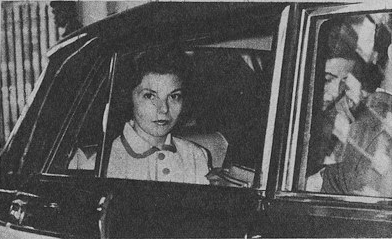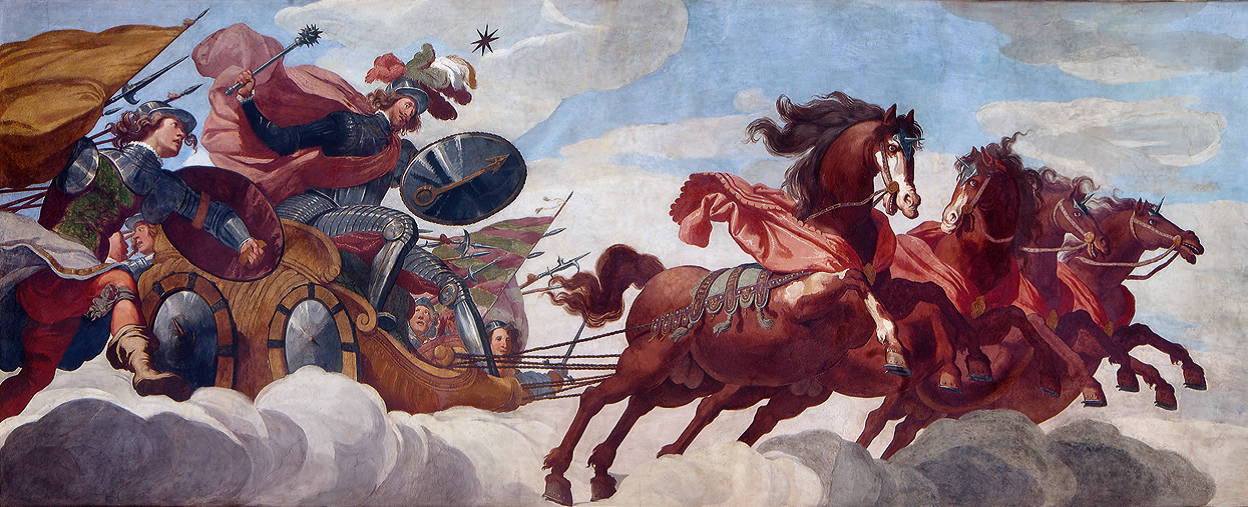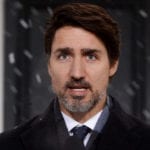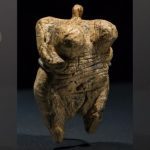 Our World
Our World  Our World
Our World  Crime
Crime 10 Dark Details of the “Bodies in the Barrels” Murders
 Animals
Animals The Animal Kingdom’s 10 Greatest Dance Moves
 Movies and TV
Movies and TV 10 Box Office Bombs That We Should Have Predicted in 2025
 History
History 10 Extreme Laws That Tried to Engineer Society
 History
History 10 “Modern” Problems with Surprising Historical Analogs
 Health
Health 10 Everyday Activities That Secretly Alter Consciousness
 History
History Top 10 Historical Disasters Caused by Someone Calling in Sick
 Animals
Animals 10 New Shark Secrets That Recently Dropped
 Movies and TV
Movies and TV 10 Forgotten Realities of Early Live Television Broadcasts
 Our World
Our World 10 Places with Geological Features That Shouldn’t Exist
 Crime
Crime 10 Dark Details of the “Bodies in the Barrels” Murders
 Animals
Animals The Animal Kingdom’s 10 Greatest Dance Moves
Who's Behind Listverse?

Jamie Frater
Head Editor
Jamie founded Listverse due to an insatiable desire to share fascinating, obscure, and bizarre facts. He has been a guest speaker on numerous national radio and television stations and is a five time published author.
More About Us Movies and TV
Movies and TV 10 Box Office Bombs That We Should Have Predicted in 2025
 History
History 10 Extreme Laws That Tried to Engineer Society
 History
History 10 “Modern” Problems with Surprising Historical Analogs
 Health
Health 10 Everyday Activities That Secretly Alter Consciousness
 History
History Top 10 Historical Disasters Caused by Someone Calling in Sick
 Animals
Animals 10 New Shark Secrets That Recently Dropped
 Movies and TV
Movies and TV 10 Forgotten Realities of Early Live Television Broadcasts
Ten World Leaders Who Leaned on Astrology for Guidance
Many people over the centuries have turned to astrology to guide their lives. Some rely on the stars to help determine the best time to do things. Many look to the stars for insight into major life changes. And it’s no different for leaders of both ancient civilizations and modern governments.
Throughout history, leaders have read the stars for insight into major events like wars or genocides. Some of us may think astrological events are insignificant. But for some world leaders, these events can be extremely influential in their decision-making. It is not uncommon for those in positions of power to seek guidance from the stars—even if only for a sense of reassurance.
So while you may be skeptical about the role astrology plays in daily life, it has influenced the decisions of those who lead nations. In turn, those decisions have changed the world. In this list, you’ll learn about ten famous world leaders who consulted the stars to gain wisdom when it came to critical governing moves.
Related: 10 Dark and Esoteric Occult Practices From History
10 Adolf Hitler’s Underlings
Adolf Hitler was not very interested in astrology, but some of his colleagues were steadfast believers in reading the stars. That list included Joseph Goebbels, Marshall Heinrich Himmler, and Deputy Fuhrer Rudolf Hess, who were all known to use astrology to make political decisions. Goebbels, the minister of propaganda, employed a team of astrologers to spread the message of the Third Reich during the war.
This approach was effective in Germany, where many people already believed in astrology. However, in order to maintain control over the narrative, the Nazi regime prohibited citizens from interpreting astrology or making their own astrological predictions. It could only be done by party leaders and then spread in an effort to further their war effort.
In one infamous instance, Himmler relied on a team of astrologers to locate Benito Mussolini when he went missing during World War II. After Mussolini was found, Himmler attributed the success to the astrologers rather than the individuals who decrypted radio codes to locate him. Rudolf Hess, Himmler’s deputy, took things even further.
In 1941, Hess made a risky decision based on the alignment of Uranus and Neptune, as advised by astrologers. They believed this was a favorable time for peace negotiations with Britain and encouraged Hess to act on it. However, Hess’s plane crashed in Scotland during the journey. Then, he was arrested and imprisoned upon being discovered in Britain without authorization.
Hitler was enraged by this incident, and it affected his view of astrology forever after. In 1944, the Fuhrer sent all the astrologers in the country to concentration camps. He also burned their books to demonstrate that he no longer believed in the influence of astrology on his men. Many of his loyal followers adhered to that change in belief, too.[1]
9 Ronald and Nancy Reagan
During their time in the White House, both President Ronald Reagan and First Lady Nancy Reagan were interested in astrology. While Ronald Reagan claimed that astrology did not influence any of his policy decisions, he did consult with celebrity astrologer Carroll Righter while he was governor of California. Plus, he was known to have planned events according to planetary configurations. So naturally, the media followed the story as the couple ascended to the White House and began making decisions that affected the entire country. Nancy Reagan was more open about her use of astrology throughout her life as a public figure.
In fact, she reportedly received a warning from an astrologer that something ominous was going to occur to her husband one day in 1981. When he was nearly felled by an assassin’s bullet in a failed attempt on that day, Nancy’s astrologer appeared to have been proven correct. In the wake of the incident, the First Lady completely took charge of her husband’s schedule and worried about how it related to the stars.
Through it all, she consulted astrological charts for clues about any potential future threats. Reagan lived out the rest of his presidency safely, of course, but Nancy wasn’t willing to take any chances without foretelling whatever possible.[2]
8 Isabel Peron

Isabel Peron became the president of Argentina in the 1970s in an unconventional manner. She was appointed as vice president by her husband, Juan Peron, when he was re-elected as commander in chief in 1973. However, when Juan Peron died just nine months into his term, Isabel took over as president. Sadly, it soon became clear that she was not capable of leading the country.
Soon enough, Jose Lopez Rega, known as “The Sorcerer,” took over as Minister of Social Welfare. In short order, he effectively started making all the decisions for her. Peron was reliant on Rega’s political expertise and, yes, astrological guidance. He regularly used his supposed ability to read the stars and interpret how they aligned with Argentina’s future. Isabel, in over her head while leading the country, acquiesced to Rega’s cult of personality.
To the surprise of few, Rega and Peron’s partnership did not last long. Ongoing civil unrest in Argentina spoiled their government and altered the course of the country. Rega, who was known as “Argentina’s Rasputin,” was not a politically experienced person. Because of that, he relied heavily on astrology—and went to it even more as his partnership with Peron went down in flames. Together, they formed the Argentine Anti-communist Alliance, a right-wing death squad that carried out state-backed terrorism.
But after just a few years, it ended in a flourish. In 1976, Peron was arrested, and Rega fled to Spain. To this day, Rega’s use of astrological charts to justify the actions taken by his and Peron’s government remains one of the most infamous failures of astrology in the political realm.[3]
7 Cleopatra
Cleopatra, the queen of Egypt, was known to consult astrologers to keep her informed of international events. Many of those questions she had for her astrology court centered on the goings-on in Rome. But the context of Cleopatra’s life and times makes some sense about astrology’s appearance in her political habits.
Cleopatra lived during the era of Ptolemy. He was a mathematician and astronomer who made significant contributions to the understanding of planetary configurations. His work also informed the distinction between then-popular Egyptian zodiac signs. Ptolemy’s cultural influence at the time was significant. So it’s only natural to recognize how that would have affected Cleopatra in her role as a leader.
After rising to take command of Egypt, Cleopatra even commissioned the painting of a mural of the zodiac on the ceiling of the Dendera Temple. In ancient Egyptian astrology, the goddess Isis was associated with the throne, and Cleopatra identified with this deity. Isis is known as a strong and confident female leader who can balance a sense of fun with the role of protector.
Of course, amid the passage of over two thousand years, it is difficult to know the specifics of Cleopatra’s conversations with astrologers. However, it is clear that she had a keen interest in astrology since it was a highly regarded science at the time. Her order to paint the zodiac mural suggests to modern-day historians that her interest in the stars was significant. With advisors around her that would have thought the same way, the modern consensus is that she did, in fact, consult astrologers regularly.[4]
6 King Hammurabi
It is believed that astrology originated in the civilization of Babylon around 5,000 years ago. That would mean it bubbled up during the long reign of King Hammurabi. This was long before Alexander the Great and his immense influence on the Babylonians’ understanding of the cosmos. (Keep Alexander in mind, though; we’ll get to him in a minute!)
King Hammurabi is well known for his brutal and extensive legal treatise known as the Code of Hammurabi. It was in place across Babylon from approximately 1792 to 1750 BC. Also, during this time, the Babylonians established their religious beliefs about the stars. The planets themselves were considered gods who sent messages directly to the king. So the alignment of the planets and stars in the galaxy was of the utmost importance to those seeking signs from the cosmos.
According to Babylonian legend, King Hammurabi received the laws of his code directly from the sun god Shamash, the deity of justice. While it is unclear how King Hammurabi himself felt about astrology in his personal life, historians believe it is very possible that the harsh punishments outlined in the Code of Hammurabi were influenced by the movements of the planets.
Things like “an eye for an eye” and the impaling of unfaithful lovers point to a cosmic influence and inspiration. The context of astrology’s rise during his rule makes that hard to discount. After all, the Babylonians felt the planets’ spots in space pointed out future events on Earth. Reading the stars, then, became an early practice in Hammurabi’s day. Now, it lives on today—and is more popular than ever.[5]
5 Albrecht Von Wallenstein

Albrecht Von Wallenstein was a Catholic general who commanded the forces of Emperor Ferdinand II during the Thirty Years’ War. From 1625 to 1632, he achieved significant success in battle against Sweden. Much of that he attributed to his astrological chart. When he was 25, in 1608, he sought renowned scientist and astronomer Johannes Kepler to create a horoscope for him.
Kepler’s notes from the reading were favorable. They stated Wallenstein’s “unusual nature will be capable of great deeds” due to the prominent placement of Mars in his birth chart. Wallenstein took these predictions to heart. He relied on his chart throughout the war. For most of it, success was at hand.
But before the crucial Battle of Lutzen in 1632, Wallenstein sought another astrological reading. In that one, he was told things would not go well for him. Whether this affected his performance or was simply accurate, we will never know. But the result was a brutal time at war. Wallenstein suffered a defeat at the hands of the Swedes and subsequently lost many of his duties as a general. Even his own astrologer, Gian Battista Zeno, began to doubt Wallenstein’s reliance on astrology.
Despite this, astrology still appeared to make a few correct predictions about the rest of his life. When Wallenstein was executed by Irish forces in 1634 for attempting to stage a coup against Ferdinand, it was the very same year Kepler had predicted he would die when creating Wallenstein’s horoscope decades earlier.[6]
4 Charles de Gaulle and Francois Mitterand

It was not surprising to those in government that Francois Mitterrand, the late president of France, consulted astrologers to help him make decisions. After all, previous French president Charles de Gaulle had also used astrologers for assistance in the 1960s. So to see his successor several decades later consult the stars was, by then, a somewhat normal occurrence in France. Still, it didn’t escape scrutiny worldwide after other leaders and the general public learned of Mitterand’s reliance on astrologers.
During Mitterrand’s presidency in the early 1990s, he regularly sought the advice of Elizabeth Teissier. He sought her help, especially when it came to trying to solve the difficult and tense Gulf War. Before an important meeting about France’s involvement in the conflict, Teissier called Mitterrand to let him know that the day of the meeting would be favorable for him.
Mitterrand later reported that Iraq’s foreign minister was more talkative than usual during negotiations. He saw that as a good sign for France’s continued involvement in the war. And he saw Teissier’s prediction as a sign that she knew how things would play out. So he went to her again soon after. Later in his presidency, Mitterrand asked Teissier when would be the best days to give a speech about the war’s progress. She suggested a Sunday, Monday, or Tuesday—and he heeded her advice.[7]
3 Queen Elizabeth I
Queen Elizabeth I was known to seek the advice of astrologer John Dee on all of her decisions. Most infamously, one consultation came during a time when she was at risk of being executed by her sister, Queen Mary I. When Dee examined Elizabeth’s birth chart, he predicted that it was actually Mary who would die suddenly. Elizabeth, he claimed, would ascend to the throne and rule instead. That’s exactly what happened, and Elizabeth never forgot the foretelling.
Dee’s accuracy in this reading cemented his position as Elizabeth’s primary advisor for the rest of her reign. But for the general public, that was to be expected. During this period of the late 16th century, astrology was commonly used as a tool in politics and medicine. At the time, it was known as the science of iatromathematics.
Dee was highly respected for his knowledge in a range of subjects, including the sciences. He even contributed to the development of Galileo’s first telescope. So his close relationship with Elizabeth was largely seen as a benefit to her reign. Despite his interest in the occult and claims of being able to communicate with angels, Dee’s expertise made him an invaluable advisor to Elizabeth. With seeming success stories like that, it’s no wonder later leaders also sought out astrologers for that extra edge.[8]
2 Indira Gandhi
Indira Gandhi, the prime minister of India, was known to consult astrologers for important decisions. She did so both openly and secretly and became infamous in her time for her perceived reliance on them. But it wasn’t always that way. In fact, earlier in her life, Gandhi had previously rejected belief in horoscopes and gods. But she became more focused on astrology after astrologers correctly predicted the death of her son in 1980. From there, she was a full-on believer—and astrologers’ advice had a major impact on her life.
According to various sources, Indira even postponed her swearing-in ceremony to a more favorable date. She filed her nomination papers at exactly 12:30 pm on the day of her ascension based on astrologers’ recommendations. But that wasn’t all.
In 1981, an astrologer from a small Hindu newspaper predicted that the prime minister would be assassinated. The prediction came out of left field, but Gandhi and her inner circle were alarmed. She sent an intelligence agency official to interrogate the astrologer over his findings. Astrologers continued to make accurate predictions even at the end of Indira’s life. And that newspaper astrologer appears to have made his own correct prediction, too. Indira Gandhi was tragically assassinated by her own bodyguards in October of 1984.[9]
1 Alexander the Great
You didn’t think we forgot about Alexander the Great, did you? Heck, he’s the guy who started it all when it comes to political and military leaders using astrology to help make decisions. Sure, Hammurabi preceded him. But Alexander the Great used it most forcefully. So he pretty much has to be on this list. Alexander’s trend kicked off more than 2,000 years ago, and everybody ever since has just been following!
Astrology, as we know it today, has its roots in the Western world thanks to the mighty ruler. After conquering Babylon in 331 BC, Alexander combined the Eastern practice of astrology with the knowledge base of Greek mathematics. That unlikely marriage led to the development of astrology as we know it. Before this, the Babylonians used the night sky to make predictions for their empire and king rather than individual people.
When the Greeks began making their own predictions, they foretold Alexander would fall in battle in Babylon. That prediction turned out to be correct. Its accuracy set off a trend of looking to astrologers to figure out what was to come. At the time, this was a new concept for the Mediterranean. However, the accuracy of the prediction was impressive. The rest, as we say now, was history—and astrology was here to stay.
If you’re tired of hearing your friends talk about their daily horoscopes, it might be helpful to know Alexander the Great played a significant role in popularizing it across the Western world. The ultimate irony, then, is that it felled him when others used it to foretell his demise. So blame him for it![10]








